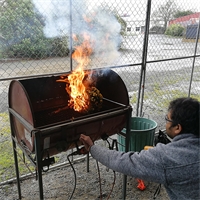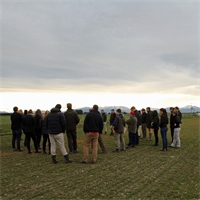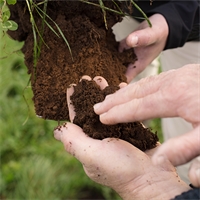27Feb
Setting up for cereal success
This promotional feature was supplied by Ballance Agri-Nutrients
Setting up for cereal success
Look back and plan ahead to get the most from your autumn sown cereal crops.
To get crops off to a good start, it is best to maintain soil nutrient levels within optimum range. Soil testing before the crop is planted will reveal if nutrient levels are below optimum range and if remedial action is required.
Also take into account the previous crop type and how its residue was managed. Different types of cereal crop residues contain varying amounts of nutrients, and this, coupled with how it’s managed, impacts the types and amounts of nutrients returned to the soil. Removing residue removes its nutrient content, but varying amounts of nutrients are returned to the soil when burning residues, leaving them on the soil surface or incorporating them into the soil.
Timely application of requirements
Soil pH levels for cereal crops should be between 5.8 and 6.2. Wheat can cope with a slightly lower pH, but barley is more sensitive. Lime needs at least 12 months to take full effect, with 1 tonne of lime per hectare shifting soil pH by approximately 0.1.
Application of Nitrogen (N) fertiliser for cereal crops should coincide with rapid growth periods, such as stem elongation in autumn-sown crops. Generally, there is enough N in the soil to support growth of cereal crops until the first spring side dressing. Nitrogen applications in spring are important to promote canopy development and maintain green leaf. Mineral N testing at this time will allow you to establish how much nitrogen is in the soil, so you can determine how much you require from nitrogen fertiliser.
Sulphur (S) is usually applied at sowing, with 15-25 kg S/ha/year generally satisfying requirements. However, if winter rainfall is typically high, promoting leaching loss, split S application between autumn and spring, or potentially delay it until spring with the first N side dressing.
Dependent on requirements, an application of Potassium (K) in autumn can be made. On coarse soils with high rainfall, splitting the application minimises potential leaching losses.
Products to consider
Sowing with phosphorus, using products within the Super, Sulphurgain or Serpentine Super range will ensure good establishment of autumn-sown crops.
If S levels are low at sowing, a product such as Sulphurgain 15S provides an immediate boost of sulphate S as well as slow release elemental S, which is not subject to leaching over winter. Although keep in mind that not all of the elemental S will release by spring. If levels are low in spring apply Nrich SOA or SustaiN Ammo as a first side dressing supplying both N and S.
If Magnesium is required, then a product such as Serpentine Super 7K, can be applied at sowing. Granulated Calmag is another option, or for extremely low magnesium levels requiring an immediately plant available form of Mg, use Kieserite Granular.
YaraMila Actyva S is also an ideal base/starter fertiliser for autumn sown cereals. It contains N, P, K and S along with key trace elements in a convenient granule, suitable for broadcasting or drilling.
Related

Research shows that certain types of plants can help protect properties from being destroyed by fire...
Read More

For young arable farmers wanting to learn more, try more and discuss more about crops, while enjoyin...
Read More

Covid-19 may have made the usual Ballance Farm Environment Awards ceremonies impossible this year fo...
Read More

Healthy, functioning soil — the basis of food and fibre production — is of great interest to farme...
Read More

Now is the opportune time for farmers who are looking to secure their future energy, lower costs, an...
Read More

Ruralco is proud to launch a partnership with business development company Stile Inc Ltd. Based in G...
Read More